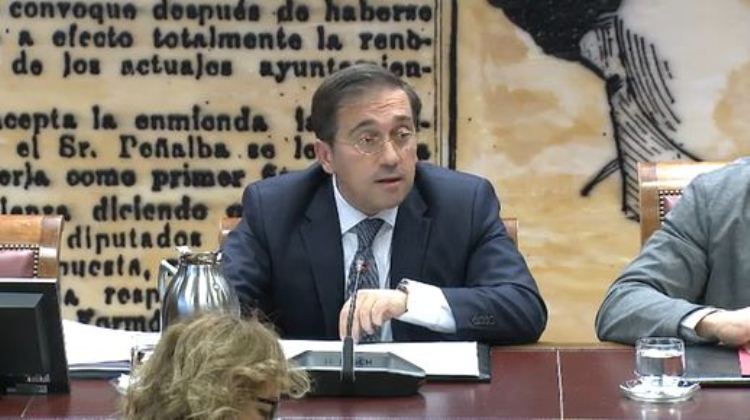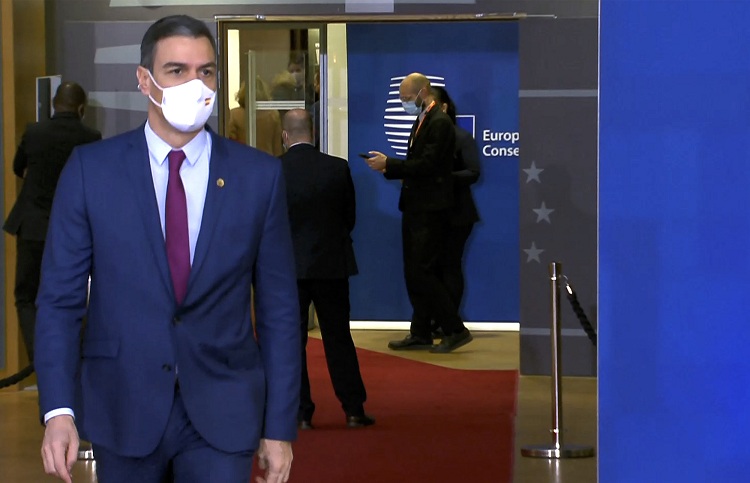The Diplomat
The Minister of Foreign Affairs, José Manuel Albares, assured yesterday before the Senate Foreign Affairs Committee that the diplomatic crisis with Morocco “is behind us”, although he admitted that he does not know the reasons why Rabat has not yet appointed a new ambassador in Madrid.
“The crisis is behind us,” said the minister during his appearance to outline the general lines of his Ministry’s policy. “I am pleased that there is no crisis with Morocco at the moment, but I am not satisfied, I want a relationship at the height of the 21st century,” he continued.
In this sense, Albares recalled the speech made by King Mohamed VI on August 21, in which he closed the serious diplomatic crisis that broke out between the two countries by the irregular entry into Spain of the leader of the Polisario Front, Brahim Ghali. Since then, “there are no more inflammatory statements, there is good collaboration at the fence in Ceuta and Melilla, the Spanish Embassy has returned to attend official events and I myself speak fluently with my counterpart,” Naser Burita, he added. “The crisis has passed, the moment of shock has passed,” he added.
According to the minister, the government’s objective is “to have the best possible neighborly relationship” as it is a “strategic partner” with numerous common interests and with relations of a “great complexity” due to the number of issues involved. Therefore, “it will take time, which is neither the time of the media, nor the time of this commission”, he warned.
The Moroccan Embassy in Madrid has been vacant since last May, when the then ambassador, Karima Benyaich, was recalled for consultations after the serious diplomatic crisis. In that sense, Albares acknowledged yesterday that he has no “answer” to the question of why Rabat has not yet appointed a new ambassador. “That has to be asked to the Moroccan government,” he said.
Albares thus responded to an intervention of the senator of Coalición Canaria Fernando Clavijo, in which the latter urged the minister to “clear doubts” about whether the prospections granted by Morocco “are located in our jurisdictional waters” and accused Albares of confusing “diplomacy with immobilism” and of being untruthful by assuring that “there is no crisis in the relations between Spain and Morocco”.
The Moroccan National Office of Hydrocarbons and Mines (ONHYM) has reached an agreement with the Israeli company Ratio Petroleum Partnership for the exploration of potential pockets of oil and gas in an area of 109,000 square kilometers that includes waters of Western Sahara and the southern Canary Islands. In this regard, Albares assured Clavijo yesterday that the Government has asked for reports to the Hydrographic Institute and that, so far, these “have always been on the side of the Moroccan waters”.
“If this were not the case, I assure you that we will act accordingly as we are doing in the case of the Chafarinas fish farm,” he continued, in relation to Rabat’s decision to allow the installation of a fish farm in Spanish territorial waters near the Chafarinas Islands without the necessary permits. Regarding this case, he recalled, a note verbale of protest has been issued to Morocco and a sanctioning file has been initiated against the company, although the response is still awaited. “I want to maintain the best neighborly relations, but there is no doubt that I will always defend the interests of Spain,” he concluded.







